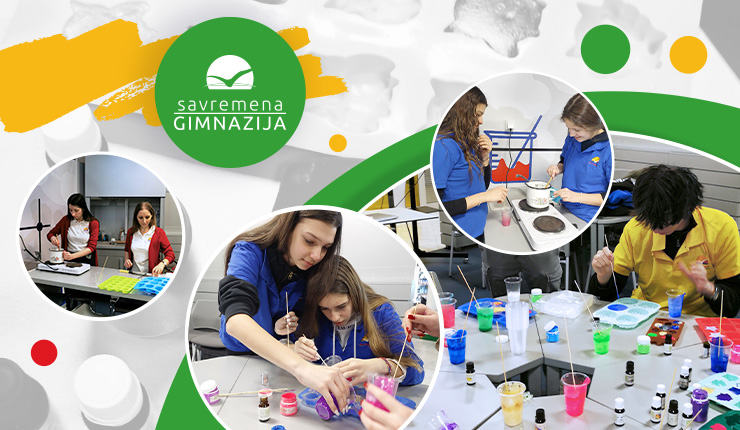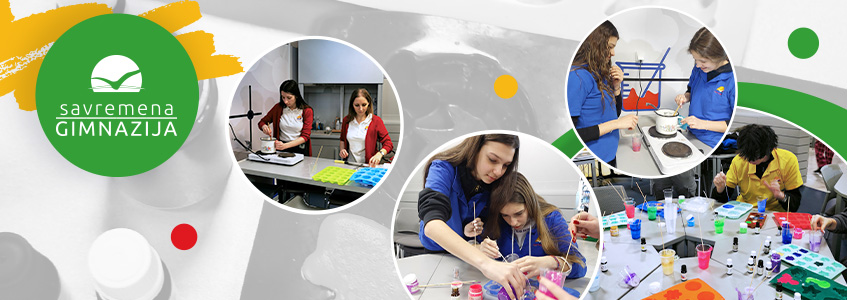
At Savremena Gimnazija, teacher Marica Đurić and expert associate Ivan Davidović started the implementation of the knowledge acquired at the professional training in Spain through various interdisciplinary projects. The idea of sustainable entrepreneurship, which was the topic of professional development training, was presented to the students in the first project by connecting two subjects: Chemistry and Art and Design.
Sustainable entrepreneurship, unlike traditional entrepreneurship, which is exclusively oriented towards economic benefits, takes into account both ecological and social factors. Therefore, an entrepreneurial venture should be profitable, but at the same time socially engaged and contribute to the preservation and improvement of the environment.
During the first stage of the project, chemistry teacher Jelena Zelenović, together with fourth-grade students of Savremena Gimnazija, made natural soaps. Natural soaps, unlike industrial soaps, do not contain artificial colours and aromas, or amounts of sulphates, phenol and propanol. When found in elevated concentrations in the environment, these substances can increase the level of pollution. Namely, soap is a type of substance that is used in combination with water, which ends up in the environment, so these non-ecological ingredients can first cause water pollution, and then soil pollution. Also, during this soap-making, there was no material that was thrown away – scrap, but all the material was used in some way. In addition, when making natural soaps, we ourselves define how much of which factor is added, in relation to the type of skin, and in this way, the possibility of users having various negative effects is reduced.

The second stage of the project was realised by Zorana Milićević, Art and Art and Design teacher. Together with the students of the first, second and third grades of Savremena Gimnazija, she designed and packaged the previously made soaps. The emphasis was on recycled material. Namely, the soaps were packed in bags made of already-used fabric, and then labels were attached to the bags. The students made the labels from old student artwork. In this way, not only was no new paper used, but old works also got a new purpose. It is planned that in the future, sustainability in Savremena Gimnazija is not only reflected in the use of recycled materials but also in the use of biodegradable materials. Accordingly, the students are growing kombucha, a fungus they’ll use for making a multifunctional material.
In the third stage, students bought soaps and put the money in a box for charity. This project reached its peak on 8 March. On that day, the students gave these beautifully packed soaps to all the female teachers at school, but also to their mothers, grandmothers, sisters, aunts, friends, etc.

















